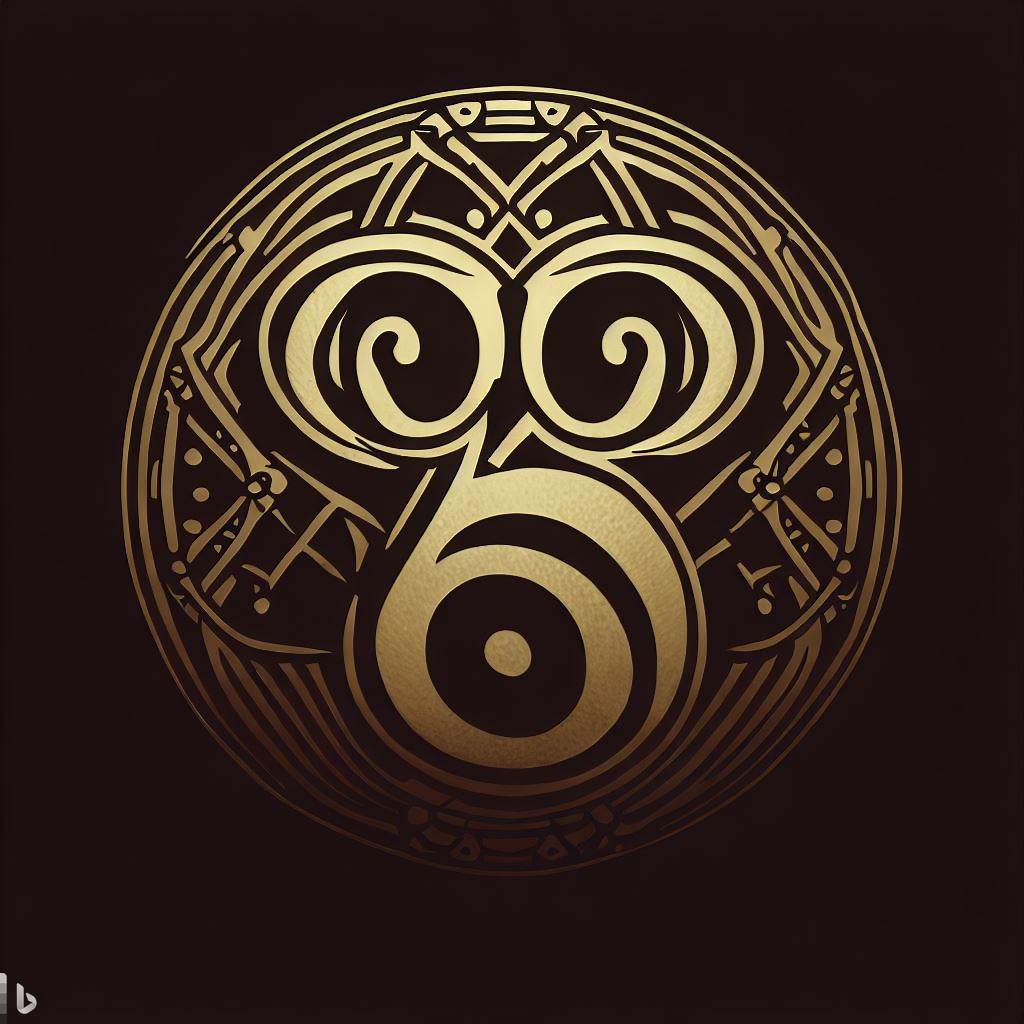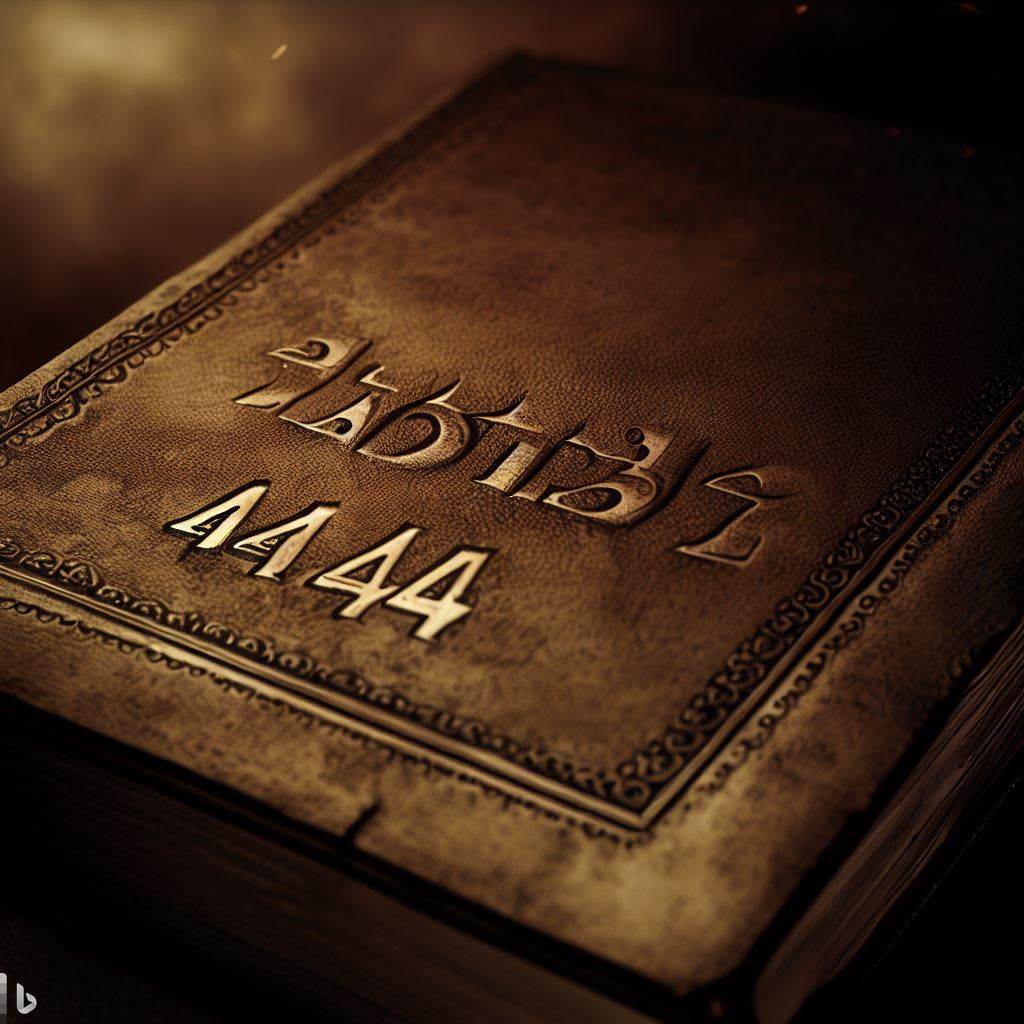Have you ever noticed a number that seems to appear repeatedly, almost as if it’s trying to tell you something? In the Bible, numbers hold symbolic meaning that can convey deeper spiritual truths. In this article, we will explore the
Through an engaging and friendly approach, we will delve into the significance of this number in the Bible. Before we do so, let’s briefly touch on the concept of numerology in the Bible and how it assigns symbolic meanings to numbers.
Key Takeaways:
- Biblical numerology assigns symbolic meanings to numbers in the Bible, suggesting deeper spiritual significance.
- We will explore the biblical meaning of 58 and uncover its hidden symbolism in this article.
Understanding Numerology in the Bible
Before we explore the specific meaning of 58 in the Bible, it’s important to understand the concept of numerology in biblical texts. Numerology is the study of the symbolic meanings of numbers. As such, it assigns spiritual significance to each numeric value in the Bible, implying that numbers are more than just mathematical values.

Numerological interpretations of Bible passages rely on the belief that God communicated divine messages through numbers. Therefore, numbers hold an important place in religious texts, conveying deeper meanings and messages beyond their literal numerical value.
The significance of certain numbers in biblical numerology extends beyond their frequency of use. Numerologists believe that the divine message of the Bible is multi-layered and complex, and the recurrence of particular numbers serves as signposts providing important spiritual information and revelations.
How Biblical Numerology Works
In biblical numerology, numbers often have both a literal and symbolic meaning. They can be understood on both a surface level and on a deeper level of spiritual significance. The meaning of a specific number is often determined by the context in which it appears and its relationship to other numbers in the text.
For instance, the number three is significant in Christianity, as it represents the Holy Trinity: Father, Son, and Holy Spirit. The number seven is also important, representing completion and perfection in biblical numerology.
Another example is the number forty; it appears throughout the Bible and represents a period of testing or trials. It rained for forty days during the flood in the story of Noah, Moses spent forty years in the wilderness, and Jesus fasted for forty days in the desert.
Understanding these numerological symbols is crucial to comprehending the biblical meaning of 58 and its significance in religious texts.
“Numerology is not a scientific study, but a spiritual one. Through understanding the symbolic meaning behind numbers, we can gain deeper insights into the divine messages conveyed through the Bible.”
The Symbolic Elements of Number 58
Now that we have a foundation in biblical numerology, let’s explore the symbolic elements associated with the number 58. This number is composed of the digits 5 and 8, each with its own distinct meaning.
| Digit | Meaning |
|---|---|
| 5 | Symbolizes God’s grace and goodness, as well as the five books of the Pentateuch. |
| 8 | Represents new beginnings, resurrection, and eternal life. It is also associated with the eighth day, the day of circumcision and the beginning of a new life in the Jewish tradition. |
By combining these meanings, we can see that the number 58 represents a new beginning and a fresh start through the grace and goodness of God. It is a symbol of eternal life and a reminder of God’s promises to his people.
The Significance of the Combination
Furthermore, the combination of 5 and 8 carries additional symbolism. When 5 is multiplied by 8, the product is 40 – a number that appears frequently in the Bible and is often associated with periods of testing and trial, as seen in the 40 years of wandering in the wilderness and the 40 days of fasting by Jesus in the desert.
Thus, the number 58 can also represent a time of testing and preparation before a new beginning or fresh start. It reminds us that growth and transformation often come after a period of struggle and perseverance.
Instances of Number 58 in the Bible
There are several instances of the number 58 in the Bible, each with unique contexts and implications. Let’s examine a few of these occurrences:
| Verse | Book | Chapter |
|---|---|---|
| Leviticus 25:10 | Leviticus | 25 |
| Isaiah 58:6 | Isaiah | 58 |
| Matthew 1:14 | Matthew | 1 |
For example, Leviticus 25:10 refers to the Year of Jubilee, which occurred every 50 years. The 58th year would have been the final year of this period of spiritual renewal and freedom. Meanwhile, Isaiah 58:6 emphasizes the importance of social justice and selflessness, suggesting that the number 58 is associated with these ideas. Additionally, Matthew 1:14 lists 58 generations between Abraham and Jesus, perhaps emphasizing the significance and continuity of this lineage.
Through examining these and other instances of the number 58 in the Bible, we can gain deeper insights into the meaning and message that this number conveys.
Key Themes and Lessons Associated with 58
Through our exploration of the biblical meaning of 58, we have identified several key themes and lessons that are associated with this number. These themes and lessons provide us with guidance and inspiration as we navigate our own spiritual journeys.
1. Renewal and Regeneration
The number 58 is often associated with renewal and regeneration. This symbolism is derived from the fact that 58 is directly linked to the year of Jubilee in the Bible, a time of renewal and restoration. The Jubilee year took place every 50 years (7 cycles of 7 years), and during this time, debts were forgiven, slaves were set free, and property was returned to its original owners. The number 58, therefore, represents a time of new beginnings and the opportunity to start afresh.
2. Liberation and Freedom
Another significant theme associated with the number 58 is liberation and freedom. This symbolism is also linked to the Jubilee year, where slaves were released and freedom was granted to all. In addition, 58 is the sum of the letters in the Hebrew word for “freedom”, which further reinforces this theme.
3. Unity and Harmony
The number 58 is also associated with unity and harmony. This symbolism is derived from the fact that 58 is the product of 2 and 29, two prime numbers that, when combined, create a greater sense of wholeness and completion. This theme is further reinforced by the fact that 58 is the sum of the digits in the word “amen”, which is often used to signify agreement and unity.
These key themes and lessons associated with the number 58 provide us with a roadmap for living a more spiritually fulfilling life. By embracing renewal and regeneration, seeking liberation and freedom, and striving for unity and harmony, we can create a more meaningful existence for ourselves and those around us.
The Historical and Cultural Context of 58 in the Bible
Understanding the historical and cultural context of the Bible is vital to comprehending the symbolism and interpretation of numbers such as 58. In biblical times, numbers held great significance and were considered divine in nature. The Hebrew language, which is the primary language of the Old Testament, assigns numerical values to each letter, allowing for a deeper level of interpretation.
Furthermore, the societies of ancient Israel and Judah were highly structured and hierarchical. Priests and other religious leaders held significant power and were responsible for interpreting and communicating God’s message to the people. It is likely that they played a role in assigning specific meanings to certain numbers, including 58.

In addition, the widespread influence of neighboring cultures and religions, such as Babylonian and Egyptian religions, may have also influenced the symbolic meanings associated with numbers in the Bible. For example, the Babylonians had a numerical system based on the number 60, which may have impacted the use and interpretation of numbers in Hebrew texts.
Symbolic Connections to Other Numbers
The numerical symbolism of the Bible is complex and interconnected, with numbers often representing multiple themes and concepts. In this section, we will explore how the number 58 relates to other significant numbers in the Bible.
5
The number 5 is often associated with grace and redemption in the Bible. In the case of 58, its constituent digits, 5 and 8, both contain a symbolic connection to this powerful theme. The number 5 is the number of grace, while the number 8 represents new beginnings and rebirth. Together, the symbolism of 58 emphasizes the transformative power of grace in creating new beginnings.
8
As previously mentioned, the number 8 represents new beginnings and rebirth. In the context of 58, this symbolism is emphasized through its common association with the Hebrew festival of Hanukkah, which lasts for 8 days. The festival commemorates the rededication of the Second Temple in Jerusalem, and as such is a powerful symbol of new beginnings and renewal.
11
The number 11 is associated with chaos and disorder in the Bible, as exemplified by the story of the Tower of Babel. However, in certain contexts, it can also represent transition and transformation. In the case of 58, the combination of 5 and 8 create the number 13, which reduces to 4 (1 + 3 = 4). This connection to the number 4, which represents stability and order, provides a counterbalance to the chaotic symbolism of 11 and underscores the transformative power of grace.
- Have you noticed any other symbolic connections between 58 and other numbers in the Bible?
- How do these connections deepen your understanding of the symbolism of 58?
Personal Reflections on the Biblical Meaning of 58
Now that we have explored the biblical meaning of 58 and its hidden symbolism, let’s take a moment for personal reflection and engagement. Consider the following questions:
- Have you ever noticed the number 58 in your own life, whether in a significant event or a recurring pattern?
- How does the symbolism of 58 resonate with your own experiences or beliefs?
- How might you apply the lessons associated with 58 to challenges or opportunities in your own life?
It can be enlightening to take a step back and consider the broader spiritual implications of seemingly mundane occurrences in our lives. By reflecting on the biblical meaning of 58 and its relevance to our own experiences, we may gain a deeper sense of purpose and meaning in our daily lives.
Applying the Lessons of 58 to Modern Life
While the biblical meaning of 58 may have roots in ancient times, its lessons are still relevant to modern life. By understanding the symbolic significance of this number, we can apply its teachings to our own experiences and challenges. Here are a few examples of how:
- Gratitude: The number 58 is associated with blessings and grace. By focusing on gratitude and counting our blessings, we can cultivate a positive mindset and attract more positivity into our lives.
- Generosity: In the Bible, the number 58 is also connected to the concept of giving. By practicing generosity and giving to others, we can experience the joy that comes from making a positive impact in someone else’s life.
- Forgiveness: The number 58 is also associated with forgiveness. By letting go of grudges and resentments, we can free ourselves from negative emotions and move forward in a positive direction.
By applying these lessons of 58 to our daily lives, we can cultivate a more positive, fulfilling existence. We encourage our readers to reflect on their own experiences and consider how the symbolic meaning of this number might apply to their lives.
Conclusion
In conclusion, the biblical meaning of the number 58 is rich with spiritual significance and hidden symbolism. By exploring numerology in the Bible and examining instances of 58 in biblical contexts, we can uncover profound messages and teachings.
Through our analysis of the constituent numbers of 58 and their individual meanings, we have gained insight into the unique symbolism of this number. By understanding its historical and cultural context, we can deepen our appreciation for its significance.
Applying the Lessons of 58 to Modern Life
While the biblical meaning of 58 may seem abstract or esoteric, its lessons are applicable to modern life. By considering how the themes and messages conveyed through 58 can be applied to our own experiences, we can gain valuable insights and guidance.
For example, the emphasis on balance and harmony in the symbolism of 58 can inspire us to seek equilibrium in our lives. The numerological significance of 58 can remind us of the power of inner strength and resilience.
Reflections on the Biblical Meaning of 58
As we reflect on the biblical meaning of 58, we encourage readers to also engage with its symbolism on a personal level. Consider how the messages and teachings conveyed through this number relate to your own life and experiences.
By exploring the spiritual meaning of 58 in the Bible, we can deepen our understanding of ourselves and the world around us. We hope this exploration of the hidden symbolism of 58 has been enlightening and inspiring, and that it encourages further exploration and reflection.
FAQ
Q: What is the biblical meaning of the number 58?
A: The biblical meaning of the number 58 is a subject of exploration and interpretation. Through the lens of numerology, this number carries symbolic significance with deeper spiritual implications in the Bible.
Q: What is numerology in the Bible?
A: Numerology in the Bible is the concept of assigning symbolic meanings to numbers. It suggests that numbers have spiritual significance and can convey deeper messages and lessons.
Q: What are the symbolic elements associated with the number 58?
A: The number 58 is composed of the individual numbers 5 and 8, which have their own symbolic meanings. When combined, they create a unique symbolism for 58, representing specific qualities and messages.
Q: Can you provide instances of the number 58 in the Bible?
A: Yes, there are specific instances of the number 58 in the Bible. By examining these occurrences and their contexts, we can gain insights into the meaning and message behind this number.
Q: What are the key themes and lessons associated with the number 58?
A: Through our analysis of the instances of number 58 in the Bible, we have identified key themes and lessons associated with this number. These passages convey timeless teachings that can be applied to our own lives.
Q: What is the historical and cultural context of the number 58 in the Bible?
A: To fully understand the biblical meaning of 58, it is important to consider its historical and cultural context. By exploring the societies and beliefs of the time, we can better comprehend the symbolism and interpretation of this number.
Q: Are there symbolic connections between the number 58 and other numbers in the Bible?
A: Yes, there are symbolic connections between the number 58 and other numbers in the Bible. By identifying patterns and relationships, we can deepen our understanding of the overall numeric symbolism present in biblical texts.
Q: How can I personally reflect on the biblical meaning of 58?
A: In this section, we encourage personal reflection and engagement with the biblical meaning of 58. We provide prompts and questions to help you consider how this number’s symbolism resonates with your own life and experiences.
Q: How can I apply the lessons of 58 to modern life?
A: In this section, we explore how the lessons learned from the biblical meaning of 58 can be applied to our everyday experiences and challenges. By bridging the gap between biblical teachings and modern life, we can find inspiration and guidance.
Q: Can you provide a conclusion on the biblical meaning of 58?
A: In conclusion, we have unraveled the hidden symbolism behind the biblical meaning of 58. By exploring its numerological significance, examining instances in the Bible, and reflecting on its lessons, we can gain a deeper understanding of this intriguing number and its relevance to our lives.






